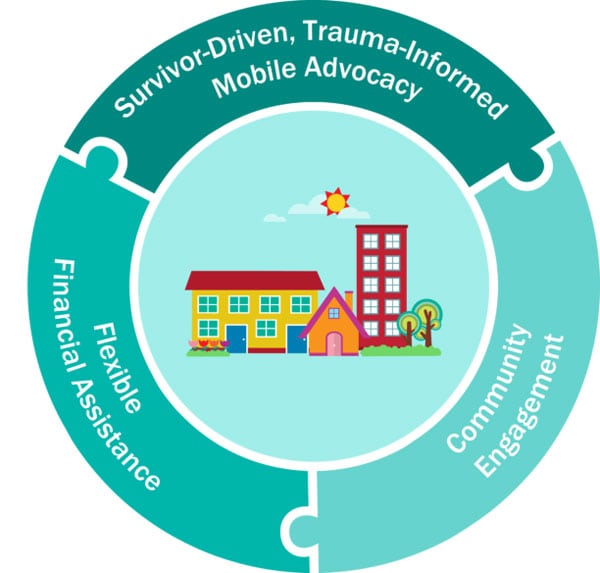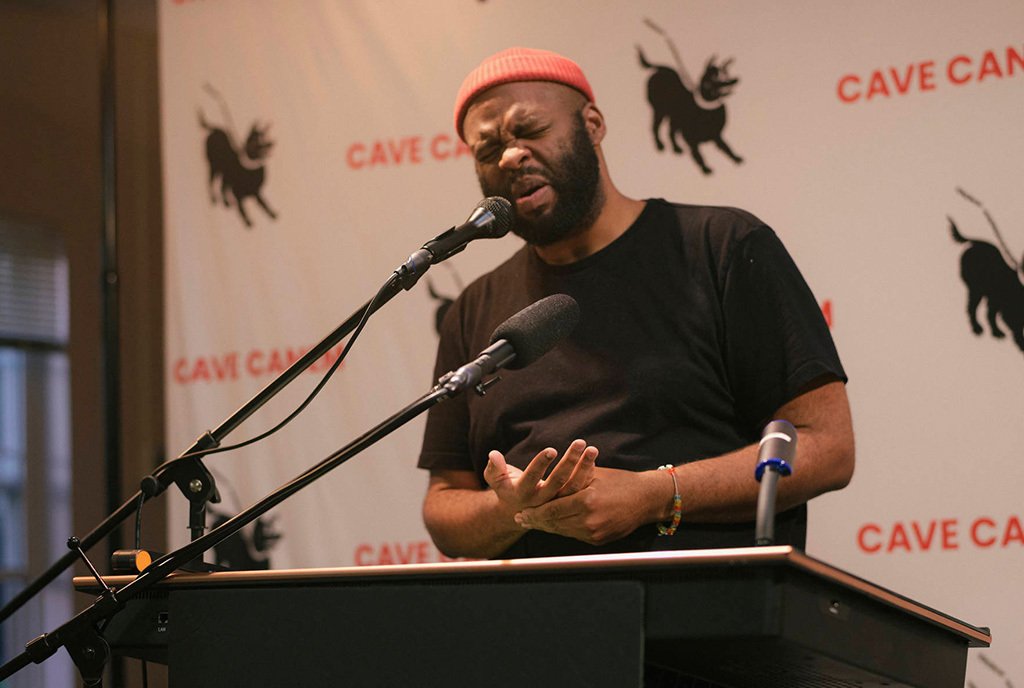
September 30, 2018; News and Tribune (Jefferson, IN)
While many domestic violence programs include either a shelter or access to safehouses, that’s certainly not the only way to serve those seeking help and advice. Advice in emergencies, legal and other types of advocacy, and safety counseling are always actively in play. In fact, Elizabeth Wessels-Martin of the Center for Women and Families of Louisville, Kentucky says that “75 percent of victims [sic] don’t seek out shelter.” Her program is closing its shelter and moving to a mobile advocacy model.
The current model, with a physical shelter, has traditionally helped about 150 people each year with a very high overhead. According to Wessels-Martin, this only scratches the surface of the need and doesn’t even respond to the wishes of those who use the services. She quotes them as thinking, “I’ll stay in a car before I go to a shelter.” So, faced with people who don’t want to come to the shelter for help, Wessels-Martin opted to implement a model that brings the help to them, which will be in effect as of November 1st.
They call their new model mobile advocacy. When relocation is needed, the Center will offer vouchers for hotels or recommendations for other living options. Those who would rather leave town to join other family members will be offered inexpensive transportation, like a bus ticket. The most important thing, according to Wessels-Martin, is that no victim need be turned away because of capacity issues.
Sign up for our free newsletters
Subscribe to NPQ's newsletters to have our top stories delivered directly to your inbox.
By signing up, you agree to our privacy policy and terms of use, and to receive messages from NPQ and our partners.
The 2016 IRS Form 990, as posted on GuideStar, lists shelter services as one of three core program areas, costing $1.8 million out of a total annual expense of $4.5 million. That year, the Center reported losses of $1.3 million.
Although seemingly new to the Louisville area, the concept of mobile advocacy has been used by a variety of organizations for a number of years. As described in an article for domesticshelters.org in 2015, the model is about bringing services to the client in a place where she is comfortable and feels safe. The services offered often include rapid rehousing, finding a new place for the victim to live at least temporarily, and other non-facility-based assistance like support groups or individual contact with an advocate. A study done for the Domestic Violence Housing First project in the state of Washington quotes advocates as saying, “Instead of having to meet the client three or four times, be prepared to do more with them in one shot,” and “It’s freeing us up to do more advocacy work around the court, police, schools, [and] welfare systems.”
According to accounts of the mobile advocacy model, it is challenging and hard, but enables an organization to reach more people and more people to access the help they need more easily and rapidly. What it risks, however, is the peer and on-site support available in a well-run shelter. Not every woman may opt for shelter, but for some, being rapidly rehoused to a motel when you fear that contacting your friends and family for support might bring the abuser to your door may pose its own set of problems. We wish, in this case, that the decision was clearly related to a program choice rather than financial circumstances. Only time, and proper evaluation, will show how it works in practice.—Rob Meiksins and Ruth McCambridge













